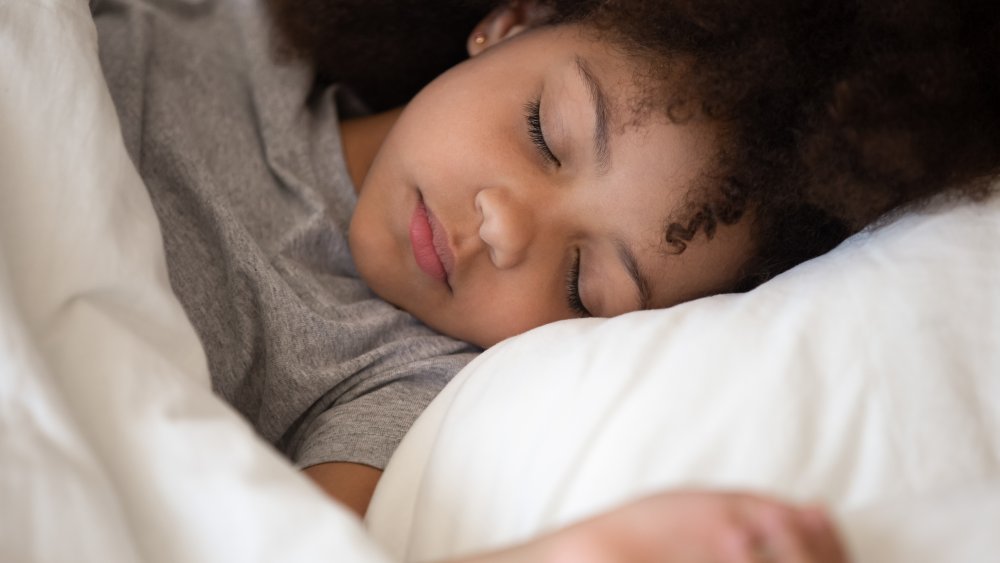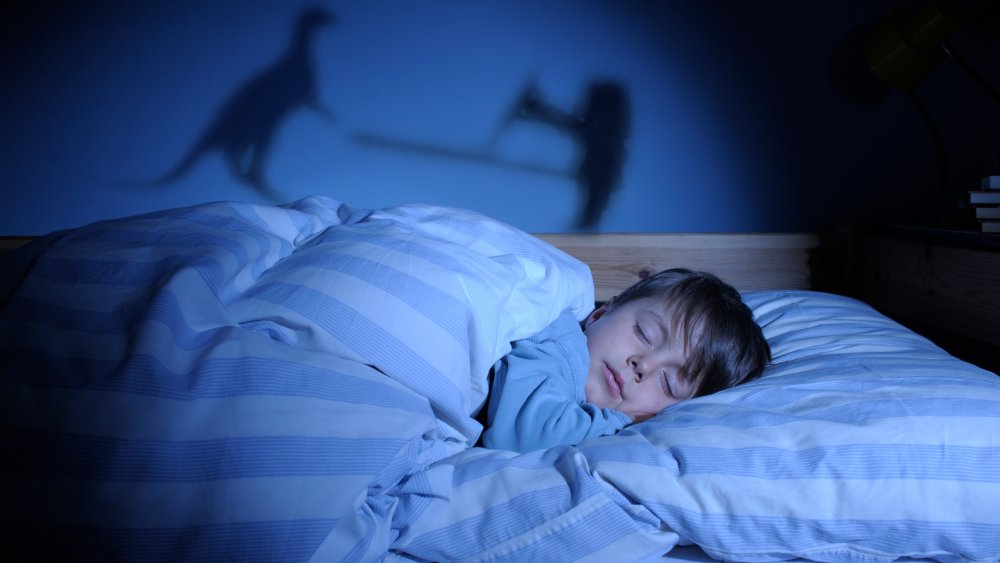The Unexpected Effects Virtual School Is Having On Kids' Sleep
The pandemic has not exactly been a kid-friendly experience. In addition to the stress that an international health and economic crisis is having on everyone, children included, it's meant canceled school trips and graduation ceremonies, and settling for a birthday where people drive by your house and honk, instead of celebrating with friends and cake and party games. And now that many kids' new version of "back to school" means back in their bedrooms, a teacher droning on over Zoom, they're missing out recess and lunch with school pals. But there's one thing that some children are not missing out on, according to one pediatrician: sleep.
Dr. Theresa Horton of the Utica Park Clinic in Tulsa, Oklahoma, said her patients are getting a better night of sleep due to online learning. This is because they don't have to wake up as early to catch the school bus, and with most after school activities canceled, they're not staying up as late to manage homework, dinner, chores, and extracurriculars. "It's really amazing how good quality sleep affects every aspect of our life and our emotional and physical well-being," Horton told Fox News. "So anything that can be done to benefit a good night sleep is helpful."
Stress and inconsistent schedules can impact quality of sleep, experts say
Before we file getting more sleep during virtual school as a "silver lining" of the pandemic, other experts point out that the stress of adapting to an online learning environment — while parents, short of patience, are trying to work from home —can mean that those extra ZZZs some kids are getting may be lower quality. The term "coronasomnia" has become one of the buzzwords of 2020, and poor sleep due to stress, disrupted schedules, and too much exposure to blue lights from laptops affects kids as well as adults.
"A lack of predictability can feel unsettling for children and increase risk for anxiety and worry," Lisa Medalie, PsyD, DBSM, a behavioral sleep medicine specialist, told the University of Chicago Medicine. "Without their usual coping strategies accessible (e.g., sports, friends, hobbies, etc.) the impact of anxiety on children can be challenging. Anxiety is not only problematic for daytime well-being, but can also increase problems with sleep."
To combat these sleep problems and ensure children are getting the most out of the extra time they have at night, keep a consistent eating and bedtime schedule, end screen time and video games at least an hour before bed, and encourage relaxing activities before kids turn in for the night, such as a bath, soothing music, or reading in bed (per UC Davis Health).


